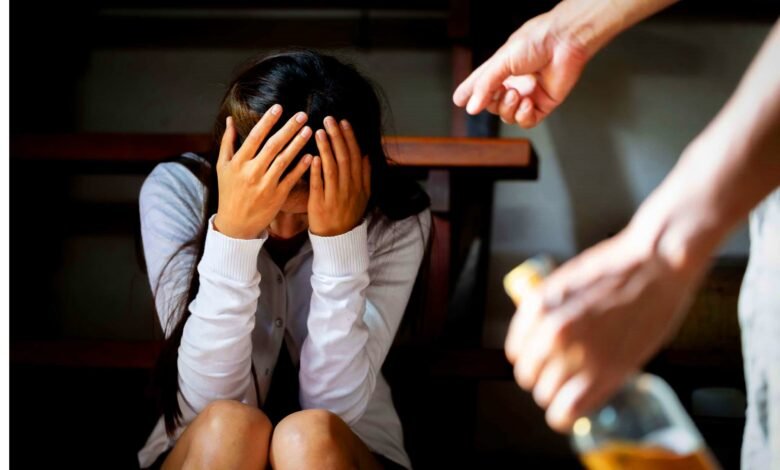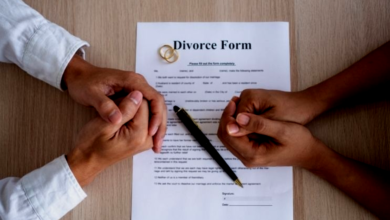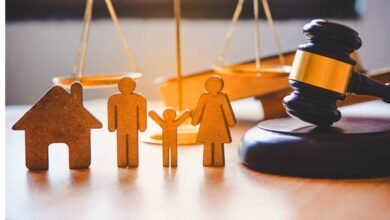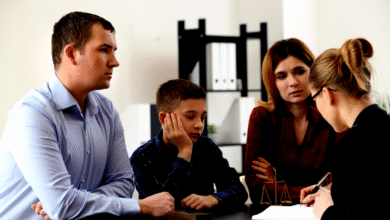Domestic Violence and Family Law: Seeking Legal Protection

Domestic violence is a pervasive and deeply concerning issue that affects millions of individuals and families around the world. Within the realm of family law, addressing domestic violence is critical to ensuring the safety, well-being, and legal rights of victims and their loved ones. This article aims to provide a comprehensive exploration of domestic violence within the context of family law, examining the legal protections available to those affected and the steps involved in seeking assistance.
TABLE OF CONTENTS
ToggleUnderstanding Domestic Violence
Definition of Domestic Violence
Domestic violence, also known as intimate partner violence, refers to a pattern of abusive behavior used by one partner to gain power and control over another in an intimate relationship. It encompasses a wide range of behaviors, including physical, emotional, psychological, sexual, and financial abuse. These actions are intended to instill fear, manipulate the victim, and maintain dominance within the relationship.
Types of Domestic Violence
Domestic violence can manifest in various forms, each with its own set of challenges and consequences. Physical abuse involves acts of violence such as hitting, punching, kicking, and restraining, resulting in physical injuries ranging from bruises to life-threatening harm. Emotional and psychological abuse includes verbal threats, intimidation, manipulation, gaslighting, and isolation, which can erode the victim’s self-esteem and sense of worth.
Sexual abuse involves coercive or non-consensual sexual acts, exploitation, and humiliation, violating the victim’s bodily autonomy and dignity. Financial abuse entails controlling access to financial resources, sabotaging the victim’s employment or education, and creating economic dependence, leaving the victim financially vulnerable and trapped in the relationship.
Legal Protection Against Domestic Violence
Overview of Family Law
Family law encompasses a broad range of legal matters related to marriage, divorce, child custody, and domestic relations. Within this framework, provisions exist to protect individuals from domestic violence and provide recourse for victims. These protections are designed to address the immediate safety concerns of victims, establish legal boundaries to prevent further harm, and facilitate access to support services for healing and recovery.
Importance of Legal Protection
Seeking legal protection is crucial for victims of domestic violence to break free from abusive relationships and rebuild their lives with safety and dignity. Legal intervention can empower survivors to assert their rights, obtain restraining orders or protective orders, secure custody arrangements, and access support services such as counseling, housing assistance, and financial resources. By engaging with the legal system, victims can hold their abusers accountable for their actions and receive the assistance needed to transition to a life free from violence.
Seeking Legal Protection
Steps to Take
Recognizing Signs of Domestic Violence
Recognizing the signs of domestic violence is the first step towards seeking help and protection. Victims may experience physical injuries, emotional distress, social isolation, and controlling behavior by the abuser. It is essential to trust one’s instincts and seek support from trusted friends, family members, or professionals who can provide assistance and guidance.
Documentation of Incidents
Documenting incidents of domestic violence is crucial for building a case and obtaining legal protection. Victims should keep detailed records of abusive incidents, including dates, descriptions, and any evidence such as photographs, medical reports, or witness statements. This documentation strengthens the victim’s credibility and provides evidence to support their claims in court proceedings.
Seeking Help from Authorities
Victims of domestic violence should reach out to law enforcement, domestic violence hotlines, or support organizations for assistance in navigating the legal system and accessing resources. Law enforcement agencies can respond to emergency situations, conduct investigations, and provide referrals to support services. Domestic violence hotlines offer confidential support, information, and resources to victims in crisis, connecting them with local shelters, legal advocates, and counseling services.
-
Legal and ethical aspects of IVF with egg donation in SpainDecember 15, 2025
-
When Does Child Support End in Australia?December 7, 2025
Obtaining Protective Orders
A protective order, also known as a restraining order or order of protection, is a legal document issued by a court to prohibit an abuser from contacting or approaching the victim. Protective orders establish legal boundaries to prevent further harm and provide immediate relief for victims at risk of violence. To obtain a protective order, victims must file a petition with the court, detailing the abusive behavior and requesting specific protections such as no-contact provisions, temporary custody of children, and exclusive use of the family home.
The court will review the petition, hold a hearing to assess the evidence, and issue the protective order if warranted. Violating a protective order is a serious offense that can result in criminal charges and additional legal consequences for the abuser.
Support Services Available
Numerous organizations and agencies offer support services to victims of domestic violence, including shelters, counseling, legal advocacy, and financial assistance. Domestic violence shelters provide safe and confidential housing for individuals and families fleeing abusive situations, offering essential services such as food, clothing, childcare, and counseling. Legal advocates offer guidance and support to victims navigating the legal system, assisting with protective orders, custody proceedings, and other legal matters.
Counseling services provide individual and group therapy to address the emotional and psychological impact of domestic violence, helping survivors heal from trauma, develop coping skills, and rebuild their lives. Financial assistance programs offer resources such as emergency funds, rental assistance, and job training to help survivors achieve financial independence and stability.
Read More: Family Law Essentials: A Comprehensive Handbook
Impact of Domestic Violence on Families
Psychological Effects
Domestic violence can have profound psychological effects on victims and their children, contributing to anxiety, depression, post-traumatic stress disorder (PTSD), and other mental health issues. The chronic stress and trauma of living in an abusive environment can erode the victim’s sense of safety, self-worth, and autonomy, leading to long-term emotional scars. Children exposed to domestic violence may experience behavioral problems, academic difficulties, and emotional disturbances, impacting their social and emotional development.
Economic Consequences
Victims of domestic violence often face significant economic hardships due to the loss of income, employment instability, legal fees, medical expenses, and housing insecurity. Abusers may sabotage their partner’s financial independence by controlling access to resources, sabotaging employment opportunities, or coercing them into financial dependence. Economic abuse can trap victims in abusive relationships, making it difficult for them to leave or seek help. Survivors may struggle to meet their basic needs, provide for their children, and rebuild their lives after leaving an abusive partner.
Legal Recourse for Victims
Family Court Proceedings
Family court proceedings involving domestic violence cases require careful consideration of the safety and well-being of all parties involved, particularly children who may be affected by the abuse. Judges presiding over these cases must prioritize the best interests of the child while ensuring the safety of the victim and holding the abuser accountable for their actions. Courts may issue temporary or permanent orders regarding custody, visitation, child support, and spousal support, taking into account the history of domestic violence, the safety of the child, and the ability of each parent to provide a nurturing and stable environment.
Custody and Visitation Rights
In cases involving child custody and visitation, courts must weigh various factors to determine the appropriate arrangement that safeguards the child’s safety and well-being. The presence of domestic violence allegations significantly impacts custody decisions, as courts must consider the risk of harm posed by the abusive parent and the impact of exposure to violence on the child’s development. Courts may order supervised visitation, restrict contact between the abuser and the child, or award sole custody to the non-abusive parent to ensure the child’s safety and stability.
Importance of Legal Representation
Role of Family Law Attorneys
critical role in advocating for victims of domestic violence and ensuring their legal rights are protected throughout the legal process. These attorneys possess specialized knowledge of family law and domestic violence dynamics, allowing them to provide expert guidance and representation to clients in navigating complex legal proceedings. Family law attorneys work closely with their clients to understand their unique circumstances, develop tailored legal strategies, and advocate for their best interests in court.
They assist victims in obtaining protective orders, navigating custody and visitation proceedings, and accessing support services such as counseling, housing assistance, and financial resources. Family law attorneys also play a vital role in educating their clients about their legal rights, empowering them to make informed decisions and assert their autonomy in navigating the legal system.
Legal Aid Resources
For individuals facing financial constraints, legal aid organizations and pro bono attorneys offer free or low-cost legal assistance to victims of domestic violence. These resources ensure that all individuals, regardless of their financial circumstances, have access to legal representation and support services to address their needs and seek justice. Legal aid organizations provide comprehensive legal services, including assistance with protective orders, divorce proceedings, custody disputes, and other family law matters.
Pro bono attorneys volunteer their time and expertise to represent clients in court proceedings, negotiate settlements, and advocate for their rights. By partnering with legal aid organizations and pro bono attorneys, victims of domestic violence can access the legal resources and support they need to break free from abusive relationships and rebuild their lives with safety and dignity.
Read More: Adoption and Surrogacy: Legal Considerations for Growing Families
Conclusion
Domestic violence is a complex and pervasive issue that requires a multifaceted approach to address effectively. Within the realm of family law, seeking legal protection is critical for victims to ensure their safety, assert their rights, and access support services for healing and recovery. By understanding the dynamics of domestic violence, recognizing the signs of abuse, and taking proactive steps to seek legal assistance, victims can break free from abusive relationships and rebuild their lives with safety, autonomy, and dignity.
Family law attorneys and legal aid resources play a vital role in advocating for victims and ensuring they have access to the legal resources and support they need to navigate the complexities of the legal system. Together, we can work towards ending the cycle of domestic violence and creating safer communities for all.
FAQs
How can I recognize signs of domestic violence?
Signs of domestic violence may include physical injuries, emotional distress, social isolation, and controlling behavior by the abuser.
What should I do if I am a victim of domestic violence?
Seek help from law enforcement, domestic violence hotlines, or support organizations, and consider obtaining a protective order.
Can I access legal assistance if I cannot afford it?
Yes, legal aid organizations and pro bono attorneys offer free or low-cost legal assistance to victims of domestic violence.
What are protective orders, and how do they work?
Protective orders, also known as restraining orders, are legal documents issued by a court to prohibit an abuser from contacting or approaching the victim.
What resources are available for survivors of domestic violence?
Survivors can access support services such as shelters, counseling, legal advocacy, and financial assistance to aid in their recovery and rebuilding process.











